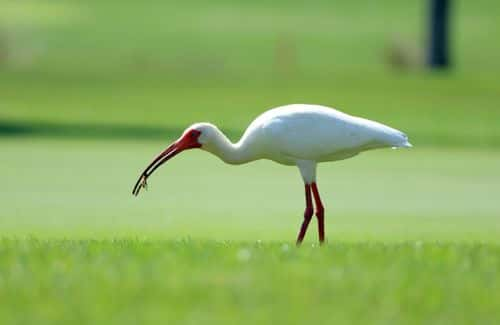Man hides bleeding ibis in bag in dramatic metro station footage, flees when confronted

SYDNEY, AUSTRALIA: A man was allegedly caught on camera attempting to capture an ibis outside a suburban train station in Sydney on Tuesday, March 28. Ibises are a group of long-legged wading birds that inhabit wetlands, forests and plains.
Two stills from a video of the incident have been released by the police as they look into a possible case of animal cruelty. In one, a man can be seen standing next to trash cans in an Eastwood park while appearing to hold an ibis. The other allegedly shows him holding a trolley with what looked like a bag with the ibis in it.. Bystanders called police many times about the event, per Yahoo News.
READ MORE
The ibis had a wounded beak and was bleeding
Witnesses informed the authorities that a man tried to push the bird into a red-wheeled trolley bag after reportedly tying a rope around the bird's feet and neck. The ibis was reported to have a wounded beak and appeared to be bleeding, but the man fled before wildlife rescuers could reach the scene.

The man was 'Asian in appearance'
In a statement, police described the man they wanted to speak to about the incident. "The man was last seen boarding a city-bound train to Central Railway Station. He is described as being Asian in appearance, wearing a navy blue short-sleeved shirt and light-coloured pants," it said. Anybody with information on the incident is urged to call Crime Stoppers at 1800 333 000, where it is guaranteed that all information will be kept strictly confidential.
The Ibis bird
The Ibis is one of the most well-known wading birds in the world. There are currently around 30 different species, but they differ greatly in terms of size, color, and other characteristics. Some Ibis species are now extinct, while a few others are listed as endangered. The primary factors influencing an Ibis bird's colour are its feeding habits and habitat. The scarlet Ibis's diet of shrimp gives it a vibrant pink color. Ibis birds are related to storks and are members of the Ciconiiformes order, which also includes spoonbills.











